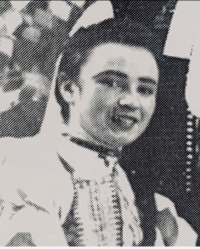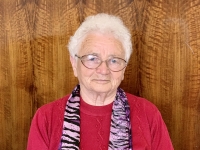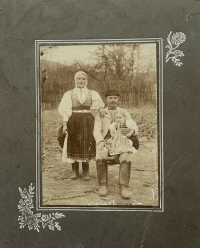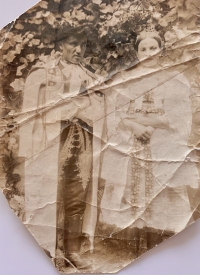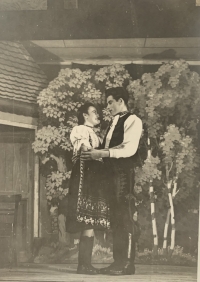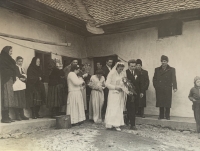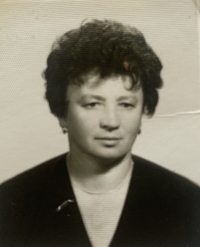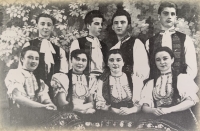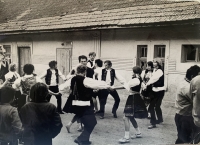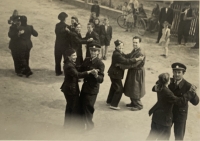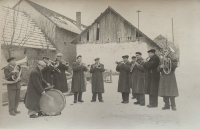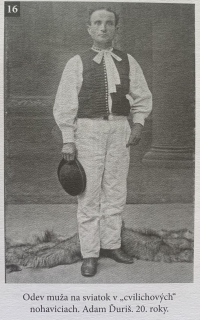My mother made me hot milk and every morning I took it to the shed, where they were being held

Download image
Anna Ďurišová, born Ďurišová, was born on March 25, 1938 in Veľké Stankovce. Parents Adam Ďuriš and Anna were farmers. As a young girl, Anna’s mother served in the Frankl family of Jewish notaries and maintained friendly relations. The Frankl family was gradually deprived of property on the basis of the Jewish Code of 1942 and sent to labor camps. The eldest spouses, Samuel and Rozália, lived in a quiet place behind the house for a while, where they were moved by the guardists. There, little Anna brought them warm milk every morning so that they would have something to eat. There was a German officer in their house during the war. Anna’s father was a mayor and the Germans and the partisans approached him with requests and pleas. At one time, Romanian soldiers, who arrived in 11 trucks, also lived there. They caught their hens and made soup from them. Before the raids, Anna went to warn the landowners to hide the horses. She also remembers a German infirmary near their house. After the war, she worked as a postwoman and would find looted things from the Frankls in their neighbours houses. The parents did not want to join the cooperative, they imprisoned Anna’s father for a few days, as a result of which she lost her job. However, they did not manage to fulfill the quota, so they eventually gave in. Anna later worked as a laundress in Merina in Trenčín. She married Pavel Ďuriš and they had three children. She never got involved politically. After the regime change, she applied for restitution of property from her parents. She acquired land that her parents once rented from the Frankls and which they gradually repaid. The granddaughter of the Frankish daughter called them from Israel. At the time of the deportations, she was married in Trenčín and survived as the only one in the family. Anna is retired today, she has been involved in amateur theater, singing and traditional costumes since she was a child.
